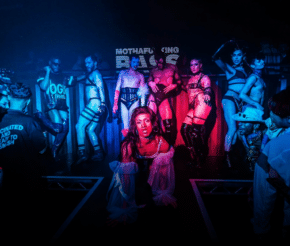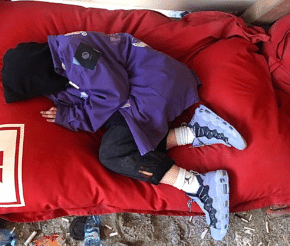- Advertise
-
Subscribe
Hookup Culture in a Post HIV World

In an interview with The Independent back in 2017, Micheal Penn, one of the longest surviving people with HIV in the UK, recalls how ‘the gay community changed the way they behaved in terms of sleeping around and practising safe sex’ when the AIDS crisis was at its peak in the 80’s.
And there’s nothing shocking about that. In fact, to suggest that a disease which decimated the gay community had a hand in changing their attitudes towards sex is a no-brainer. Hookups became life or death decisions.
Loved ones were dropping like flies – many of them young, all of them let down by lacking medical knowledge and governmental neglect.
But life is very different now. As a participant in a study by UK-based AIDS charity, NAM, revealed:
“In London it’s almost got to the point where people are not that concerned about [HIV] anymore. It’s not looked at as a death sentence. I remember reading an article by a doctor, which I know a lot of gay people seem to have read, [where he said] that he would rather have HIV than diabetes.”

Nowadays, Michael’s statement doesn’t ring true anymore.
Though they’ve grown up in the shadow of the late Twentieth century’s lost generation, today’s LGBTQ+ community has a totally different outlook on HIV from their predecessors.
Finding out that your hookup is HIV positive isn’t a death sentence
Life or death decisions have been replaced by a couple of pills a day. And since the invention of PEP and PrEP (post/pre-exposure prophylaxis), finding out that your hookup is HIV positive is neither a death sentence nor a dealbreaker, providing you can get yourself to a clinic to access proper medical treatment.

In the Western world at least, HIV is viewed as a ‘treatable illness’ (despite the fact that it can’t be fully treated). This means that even if ‘the worst did happen’ and an individual contracted the disease, it’s ‘no longer the worst’ like it was during its peak, as another participant in NAM’s study explained:
“When we were young adults, the fear of God was put into us. If you got it you died. Now it’s manageable… you could live a normal life… [so I came] to the conclusion that if I did become HIV-positive it wouldn’t be a big event in my life.”
Which is a huge step forward. The stigma surrounding the illness has been lessened; the fear mongering and misinformation about how it is spread and who is ‘to blame’ for it is a thing of the past (at least, for the most part).
As the severity of HIV lessened, so did the precautions against getting it
But there’s more to it than that. As studies have shown, unprotected sex (or ‘bare backing’) is seemingly on the rise among men who have sex with men (MSM).
As the severity of HIV and AIDS has been lessened, so has the urgency lessened for precautions protecting against it.
Unsurprisingly, experts believe that this could be the start of a concerning new trend.

In a study carried out by Advocate Magazine, 91% of MSM between the ages of 13 and 29 said that they knew how to protect themselves against HIV. 46.4% said they’d still gone condomless though – with three quarters blaming the decision on impulsive sexual behaviour, and 84% putting it down to a dislike for the way protected sex feels.
And it goes beyond conscious decision-making. 57% of those interviewed cited the influence of drugs as the reason behind their unprotected rendezvouses.
Admittedly, this isn’t a new trend, but it’s worthy of note considering the wider array of drugs on offer, along with the normalisation of narcotics in general nowadays, as another participant in NAM’s study noted:
“Drugs have changed, there are more choices… GHB, mephedrone… I was quite scared of [it] in the beginning but then it’s normalised in the gay scene and you just tend to do what other people do.”

In today’s society, there’s a whole world of sexual encounters at our fingertips. With the development of dating apps like Grindr and Growlr – which rake in 13 million and 8 million monthly subscribers respectively – it’s easy to get swept up in the hookup haze when it’s only a click away.
Today, there’s a whole world of sexual encounters at our fingertips
Add to this the high-risk high-reward philosophy of drug culture, and it’s not hard to see how laissez faire attitudes make the threat of HIV seem like a distant memory, even though it’s anything but.






